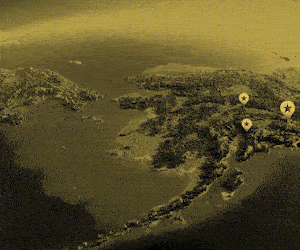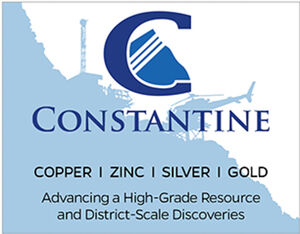B.C. mining prepares for rally in 2010
Though activity fell sharply in 2009, exploration spending in the province still outperformed all but five of the past 20 years
Last updated 2/28/2010 at Noon
Mineral exploration activity in British Columbia fell 58 percent to $154 million in 2009 from C$367 million a year earlier, but one B.C. government official said the outcome still was the sixth-highest for exploration spending in the past 20 years and the province has reason for optimism.
"Despite a difficult economic climate in 2009, the mining industry is helping lead the provincial economic recovery," said Randy Hawes, B.C. Minister of State for Mining.
Hawes made the announcements during a keynote address at the opening of Mineral Exploration Roundup 2010. The Association for Mineral Exploration British Columbia's 27th annual Roundup conference was held in Vancouver Jan. 18-21.
Roundup is a technical mineral exploration conference highlighting Canadian and international exploration and mine development activities. Nearly 6,000 delegates attended the conference this year.
Hawes said the province's mineral resources are in demand, and B.C. is an attractive place to invest in exploration and mining.
"The economic turnaround and recovery in world economies has led to a higher demand for minerals and strong copper and gold prices trending up throughout 2009," Hawes said. "Exploration activity rallied very late in the year as a result of high copper and gold prices, and there is lots of reason to be optimistic for 2010.
"Mining is going to lead the economic recovery in our province," he predicted.
Northwest region leads spending
The B.C. Ministry of Energy, Mines and Petroleum Resources released two reports in January that documented 2009 exploration and mining activity, along with the annual report on geological fieldwork and several other reports and maps from the British Columbia Geological Survey.
In the province's Northwest region, more than C$65 million in mineral exploration activity occurred last year, while the Northeast attracted C$20 million in comparable activity. The North-central region of British Columbia saw an estimated $28 million; the South-central region drew C$21 million; the Southeast had C$9 million and the Southwest drew C$11 million.
The province saw 30 mine development projects submitted to government, more than 80 exploration projects with budgets exceeding C$250,000, and a total of more than 350 exploration projects for minerals, coal, industrial minerals and aggregates throughout British Columbia.
New mine proposals in 2009 totaled 36, of which 21 were metal mines and 10 were coal mines, two were industrial minerals quarries and three were large aggregate operations. Twenty-three of the projects were in the environmental assessment process, seven were in the Mines Act permitting process and six were in development.
Exploration drilling in British Columbia totaled more than 350,000 meters during the year, and 28 new mineral discoveries were reported in the province.
British Columbia has nine coal mines and eight metal mines in operation. There are more than 30 industrial minerals mines, and hundreds of sand and gravel quarries providing employment to B.C. workers.
The province was expected to produce solid minerals totaling C$5.7 billion in value in 2009. Output was dominated by coal and copper, which account for 72 percent of the total value.
B.C. economy relies on mining
Hawes proclaimed Jan. 17-23, Mineral Exploration Week, marking the third year the province has recognized the industry sector with a week that celebrates contributions that prospectors and mineral exploration companies and related industries make to British Columbia.
British Columbia is estimated to account for about 10 percent of Canadian mineral exploration investments during 2009, up from about 5 percent in 2000.
The B.C. government notes that 28,000 people are employed in the mining and minerals sector in more than 50 communities: 14,000 directly and several thousand additional jobs in the service sector that rely on exploration and the mining industry. Mining jobs pay family supporting wages averaging C$112,800 with benefits, the government said.
Despite the important role that mining plays in the B.C. economy, it faces a substantial threat in the ongoing erosion of publicly owned mineral lands that are open to responsible mineral explorers and developers, according to Gavin Dirom, president and CEO of AME BC.
More than 14 percent of British Columbia is now parkland - which is more land under complete protection than any other province in Canada, and much greater than most other jurisdictions in the world. And an almost equal amount of B.C. is under special management where industrial activity is extremely uncommon, Dirom told delegates attending the Roundup Jan. 19.
"Combine this with our urban areas and about 40 percent of B.C., equal to the size of Montana at 377,000 square kilometers, or 145,561 square miles, is effectively off-limits to potential mineral resource extraction," he added.













Reader Comments(0)